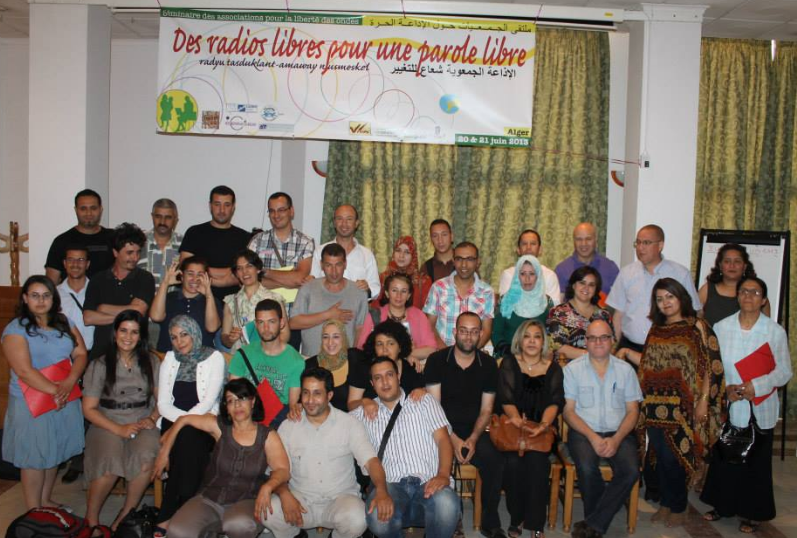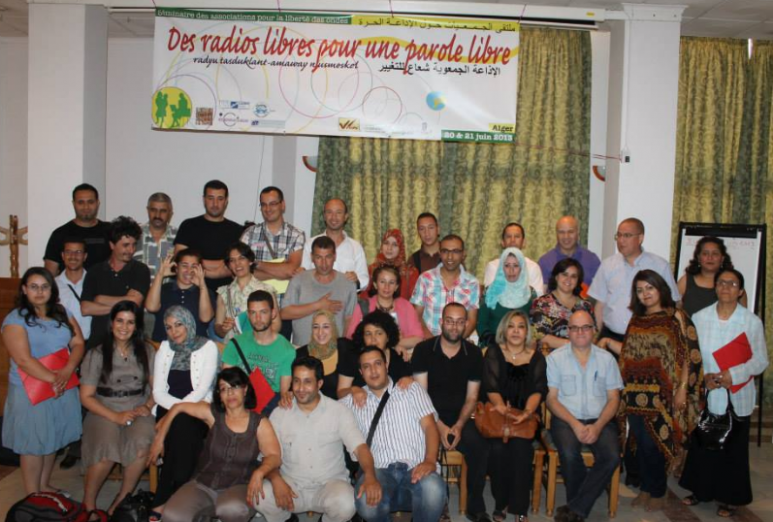Dates: 21-22 June 2013
Country: Algeria


The two-day conference explored the lacks of the state-controlled broadcast system and the current situation in terms of media legislation. While most debates on broadcast liberalisation focus on the opening of the market, many panellists highlighted the need of community radio networks alongside with the commercial ones.
The debate was organised by the Forum des Alternatives Maroc, e-joussour, Community Media Solutions (Royaume-Uni) and the network Aswatona in partnership with Rassemblement Actions Jeunesse (RAJ), Conseil des Lycées d’Algérie (CLA), Ligue Algérienne pour la Défence des Droits de l’Homme (LADDH), Femme En Communication (FEC), and feminist association Tharwa n’Fatma n’Soumer.
The conference was followed by the signing of the “Déclaration d’Alger”. Through this document, associations ask Algerian authorities to guarantee freedom, independence, and pluralism of media; access to public media for citizens; access to information for everyone; and to open up the audio-visual sector to associations.
Community media, the declaration also says, are essential to make citizens aware of their fundamental rights.
Attendants agreed that there is a long way to go before seeing the actual opening of the audio-visual sector implemented in Algeria. Without the mobilisation of the civil society, the power-to-be will keep turning a blind eye on the needs of its citizenry.
Salah Fourti, general secretary of the Tunisian trade union for independent radio networks, pointed out: “If you wait for the authorities to change their views, you’re going to wait up until the next century,” paper El Watan reported.
The conference and the Declaration of Algiers have the aim to influence the decision of Algerian authorities in terms of media legislation. Algerian parliament is going to draft a new law on the audio-visual sector after 50 years of state monopoly. Over the last few months five private TV channels with studios in Algeria have been unofficially allowed to broadcast their programmes from neighbouring countries.
Mustapha Bouchachi, former president of LADDH, has no doubts that a new law would not bring any improvements: “The only legislation the current institutions might put forward now would just fall within, and confirm, the current situation; the reason being all institutions act beyond the law.”
